Ai Weiwei: ‘I’m a traveller – I don’t have a sense of belonging’
As he releases his memoir, Ai Weiwei speaks to Rory Sullivan about burning his first copy with his son, remembering his father and what living in the US taught him

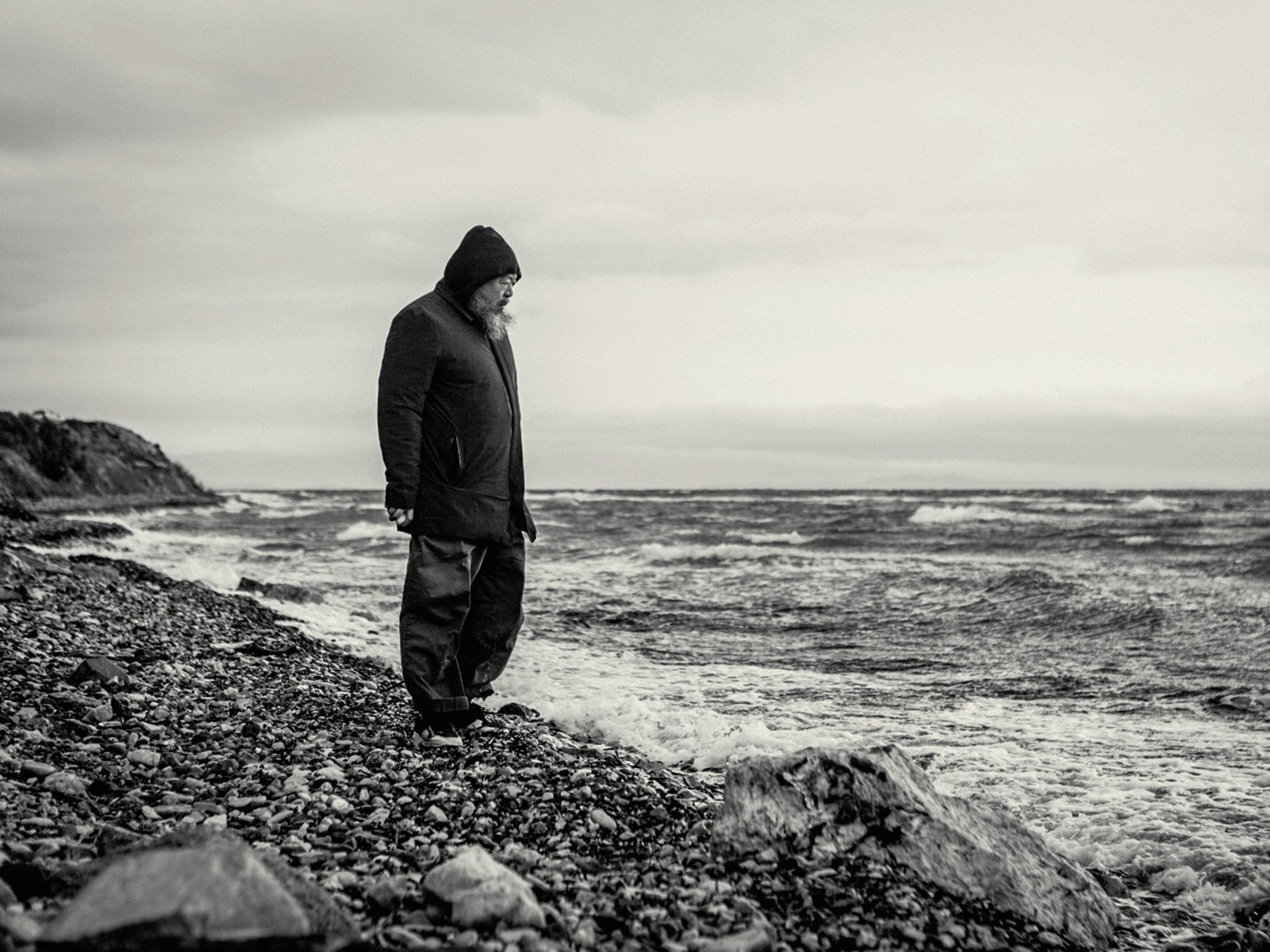
Flames dance around the corners of a book above a rectangle of grass. The title can still be made out but will soon disappear: 1,000 Years of Joys and Sorrows, a memoir by the celebrated Chinese artist and dissident Ai Weiwei. Its pages crackle in the heat and turn to ash.
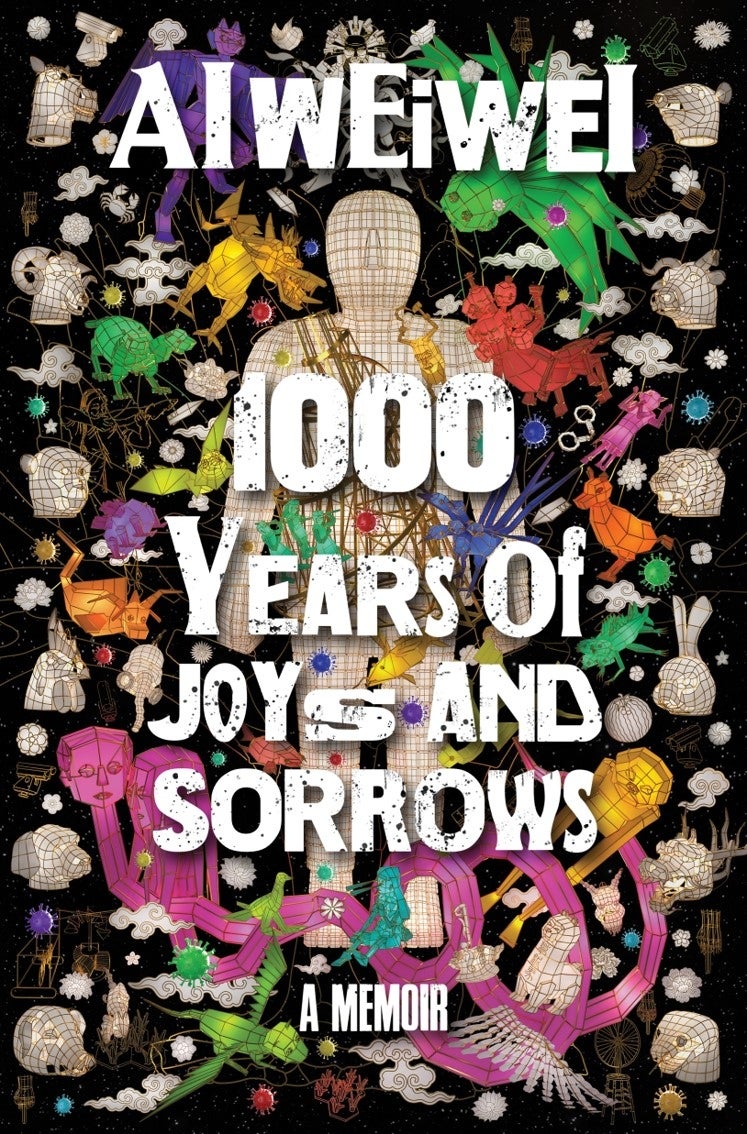
Book burnings are usually associated with censorship, fuelled by paranoia and rage, but as the author himself lights the fire, before standing back to watch the spectacle with his 12-year-old son Lao, this one takes on a different flavour.
For those familiar with Ai, the recording he shows me on his phone may not be altogether surprising. In his own words, he is “a born contrarian”, a description borne out by one of his early works in which he deliberately drops a Han dynasty urn as a challenge to people’s notions of value. However, his most recent act of destruction is less a public statement and more a deeply personal act, something closely entwined with his childhood.
“Just yesterday, when I received my first book, I did a little performance with my son,” Ai tells me over green tea in the wood-panelled corner of an upmarket hotel in central London, his face beaming with pride. The burning, an intimate family moment, recalled a similar event that took place more than half a century ago in the far west of China, where Ai was living with his father, the distinguished poet Ai Qing.
“I burned books with my father for different reasons,” the now 64-year-old says in a soft voice. Ai Qing took the decision to destroy his reading collection because he knew better than most the trouble that words could bring in communist China. He had known Mao Zedong personally in the 1940s and later served as a high-ranking party official, before being swept up in intellectual purges from 1957. Torching the poetry of Lorca, Mayakovsky, Neruda and others was therefore a protective decision, designed to shield his son from facing similar harm in the future.
Little did he know that decades later the boy who built the fire with him would also be persecuted by the state. Ai puts their shared fate down to their willingness to speak out regardless of the consequences. “He never tried to be different from how he was. That got him constantly into trouble. In that sense, we are very similar. I would give up everything to defend the truth.”
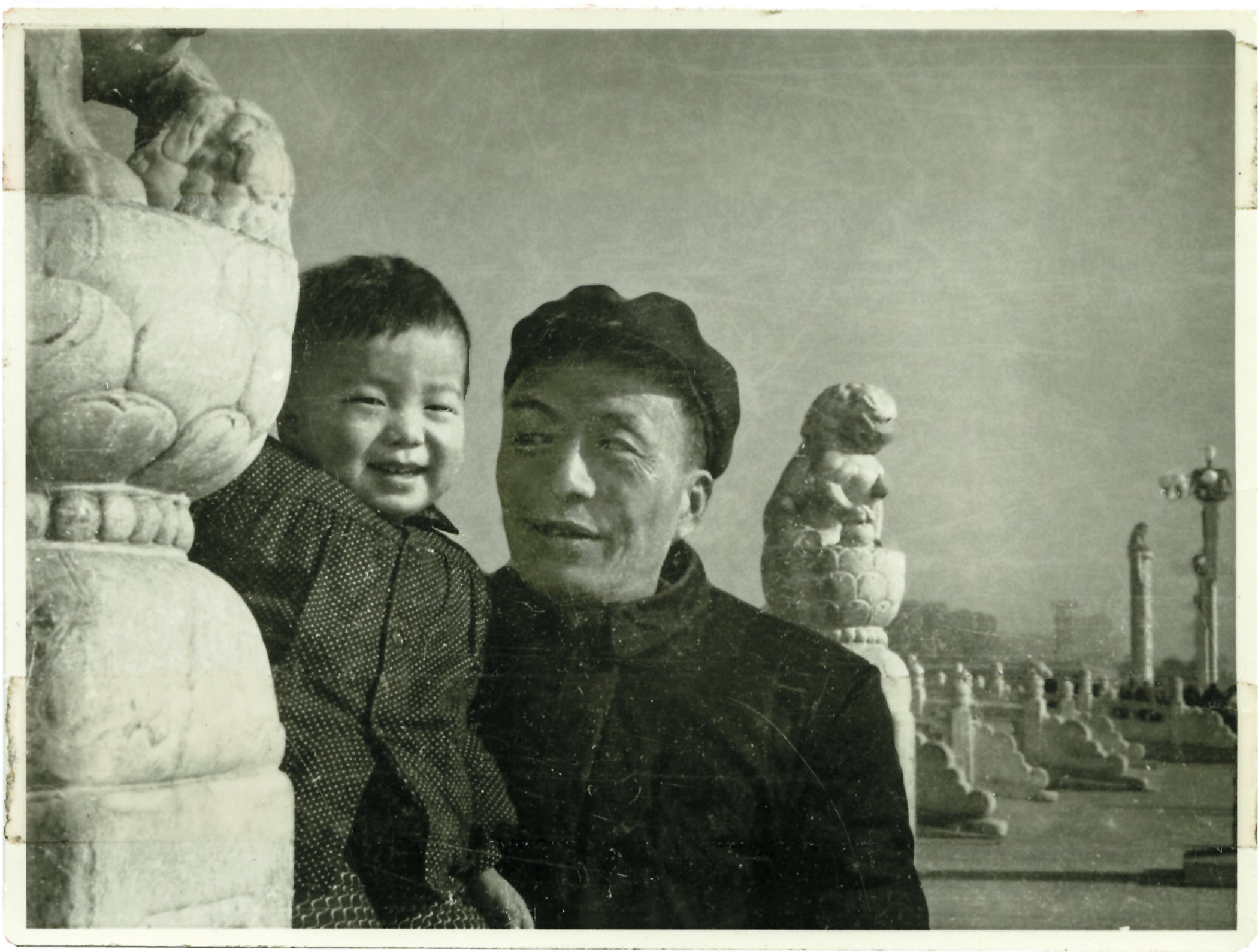
As Ai knows well, truth in an authoritarian country can come at a price. For him, part of this cost came when the authorities seized him at Beijing airport on 3 April 2011 and detained him for 81 days. He was then put under house arrest for four years and made to pay a £1.5m fine. Once he received his passport back in July 2015, he left China and went into political exile in Europe.
Ai’s willingness to speak truth to power had rankled the Chinese Communist Party (CCP). But he believes one artwork particularly enraged the country’s rulers and led to his arrest: a piece called Remembering, which was shown at Munich’s Haus der Kunst museum in 2009. It concerned the devastating earthquake in Sichuan the previous year, which claimed more than 80,000 lives, including many children who died when their shoddily constructed school buildings collapsed.
By 2008, the artist had been writing his daily blog on modern China, government and art for three years and had amassed a significant following. In the earthquake’s aftermath, he launched an investigation to collect details about the children who had died in the tragedy and used his writing platform to amplify its findings. Within a year, his team of citizen helpers had compiled a list of 5,219 names. To remember these victims, he used thousands of student backpacks to spell out the words of one mother on the facade of the German museum: “All I want is to let the world remember she had been living happily for seven years.”
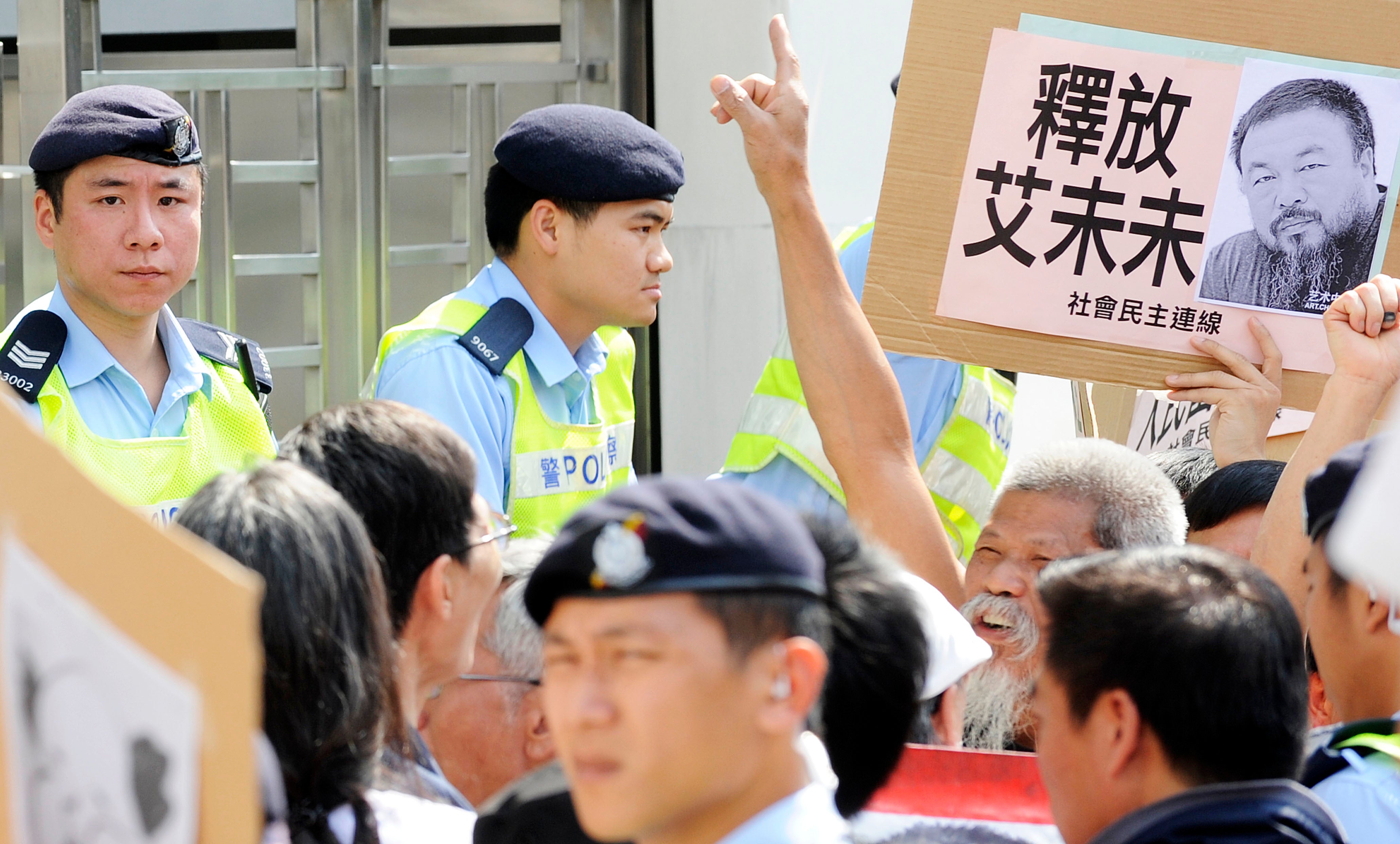
For publicising the CCP’s negligence in Sichuan and its attempts to silence reporters, Ai spent almost three months being interrogated. The idea for 1,000 Years of Joys and Sorrows came to Ai during this period in custody. Lying in a room surrounded by guards and watched closely by security cameras, he reflected on his father’s experiences at the hands of the state. And he felt “a deep pang of regret” at not knowing him better, vowing to write about both their lives so that his son would not suffer the same regret.
He seems to have succeeded in this respect. He shares a short review his son has written about the book with me. It ends: “I have very little or practically no memory of China. Although this memoir might not give the best impression of China, it is the one I will remember.”
The book, whose title is taken from one of his dad’s poems, took Ai 10 years to finish in two-hour daily writing sessions. “I now have a greater admiration for my father,” Ai says, referring to the discipline required of writers. He adds that he enjoyed the creative and editing process, whittling his original manuscript of 800,000 words down to just over 100,000.
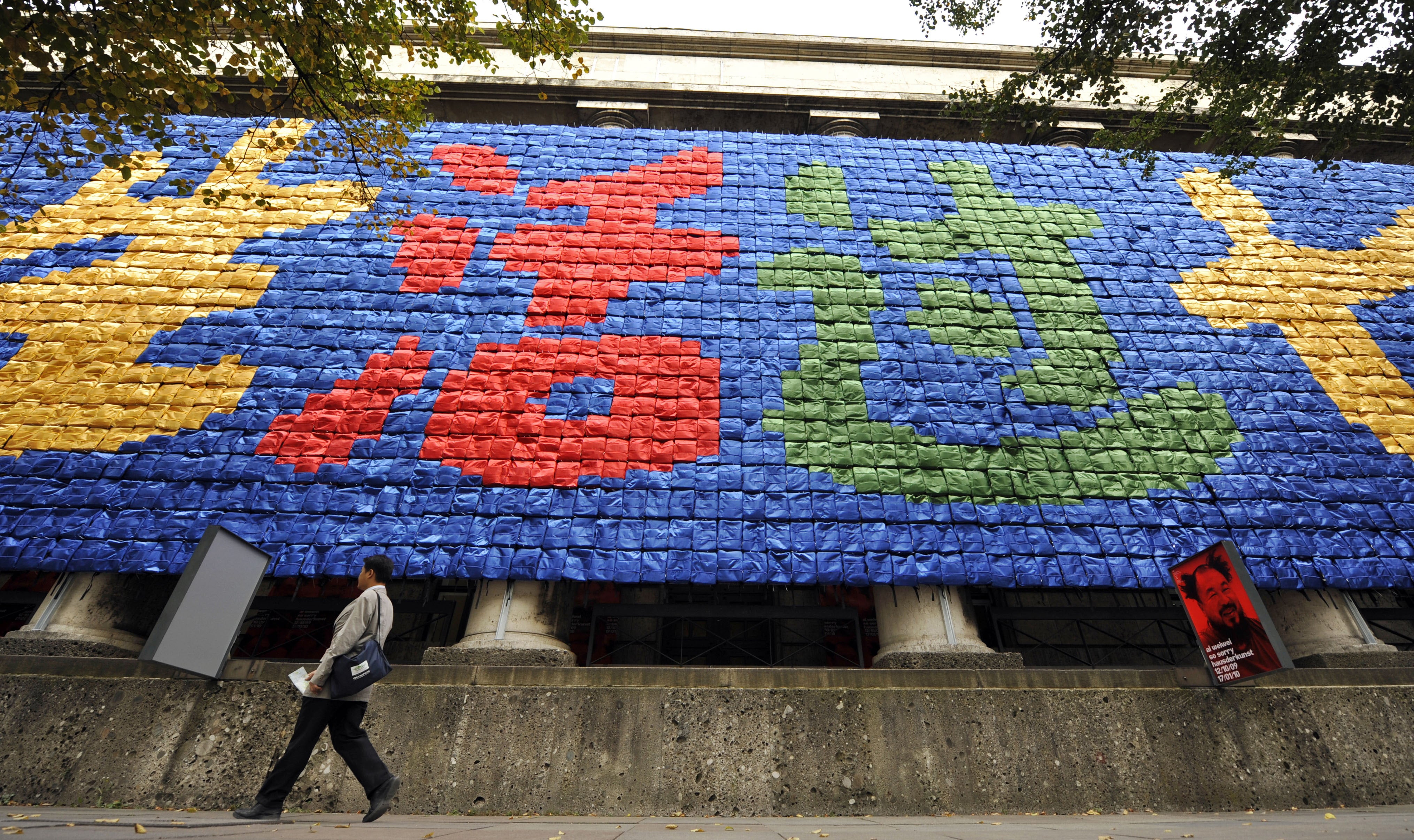
Ai says his writing takes “a little influence” from his father. “We both use modern language very directly. He is very poetic but I still have a poetic nature in terms of my thinking and my careful use of vocabulary.” I find he speaks in the same highly measured way.
His childhood had a large bearing on his later life, especially the five years he spent in “Little Siberia”, a rugged area overlooking the Gurbantünggüt Desert in northern Xinjiang province. It features prominently in the narrative and has clearly had an enormous effect on who he is today. Pulling out his phone once more, he points to his screensaver, a photo of the earthen dugout where he, his father and his half-brother slept in a lightless room.
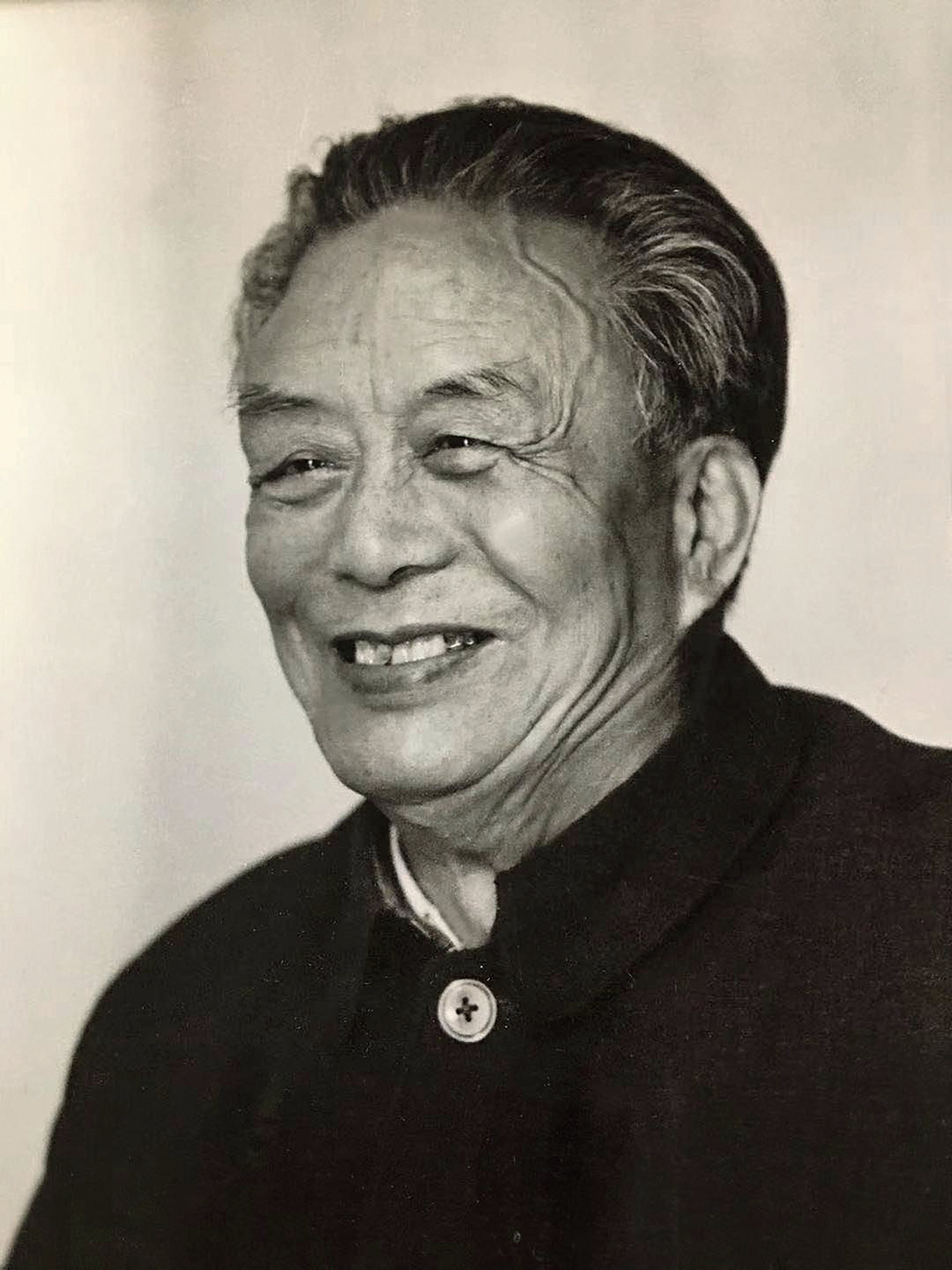
“My mind was often as bare as the room itself, empty of imagination and empty of memories, and my father and I were like strangers, with nothing to say to each other,” he writes with characteristic economy of language. His father thought similarly when reflecting on the effects of being cut off from the world. “It’s not easy to dredge up scattered memories from the bottom of the sea. Corroded by the seawater, many have lost their original luster.”
One of his earliest memories from Little Siberia is of his father cleaning the village’s open toilet. “If you call it a toilet, it’s not the right word. There’s no such word,” he says, noting how degradingly a “fine man” could be treated.
On important occasions such as national holidays, his father would be forced to wear a dunce cap in public. “I felt humiliated because there’s no reason to do that to someone,” his son says, all these years later.
His surroundings were also seared into him, as a passage in the book about being adrift in his twenties demonstrates. “I felt untamed blood flowing through my veins: it came from the endless desert, from the white salt plains, from the pitch-black dugout and the helplessness of those long, humiliating years,” he writes.
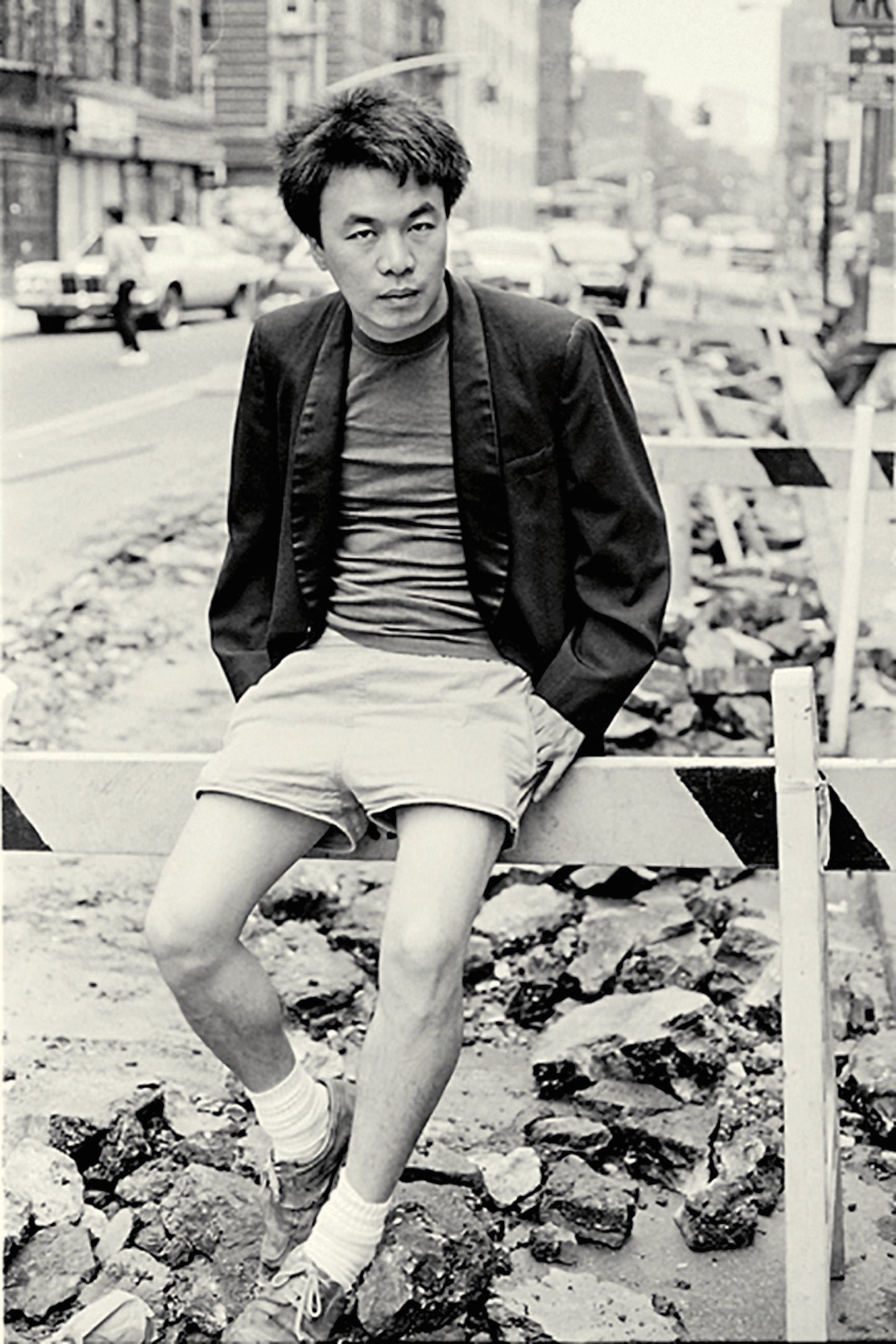
If the poverty and landscape of his childhood shaped him, the 12 years he spent in the US, living largely in New York did so too, albeit in a very different way. After growing up in a closed society, the “capital of capitalism” opened his eyes to a different world. “It gave me a real education. If I didn’t have it, I think I would be very unbalanced today.”
In the US, Ai scraped together a living by doing a swathe of different jobs, including painting portraits. He also briefly studied at two art institutions, became inspired by the works of Marcel Duchamp and Andy Warhol and held a solo show in New York called Old Shoes, Safe Sex.
Although he dismisses his time in the US as “boring” and tells me he was “disillusioned” there, Ai undoubtedly had some interesting experiences in New York. For example, he was taught by the Irish painter Sean Scully at the Parsons School of Design and befriended the beat poet Alan Ginsberg, who reminded him of his father and made him feel at home.
Smiling warmly, Ai recalls how Ginsberg introduced him to Susan Sontag on a street corner as a “Chinese philosopher”. He laughs, saying he did not much feel like one, as he was heading off to Greenwich Village to paint pictures for $15. The young artist could well have stayed in America for longer, but decided to return home after seeing the Chinese state’s brutal crackdown against students in Tiananmen Square in 1989.
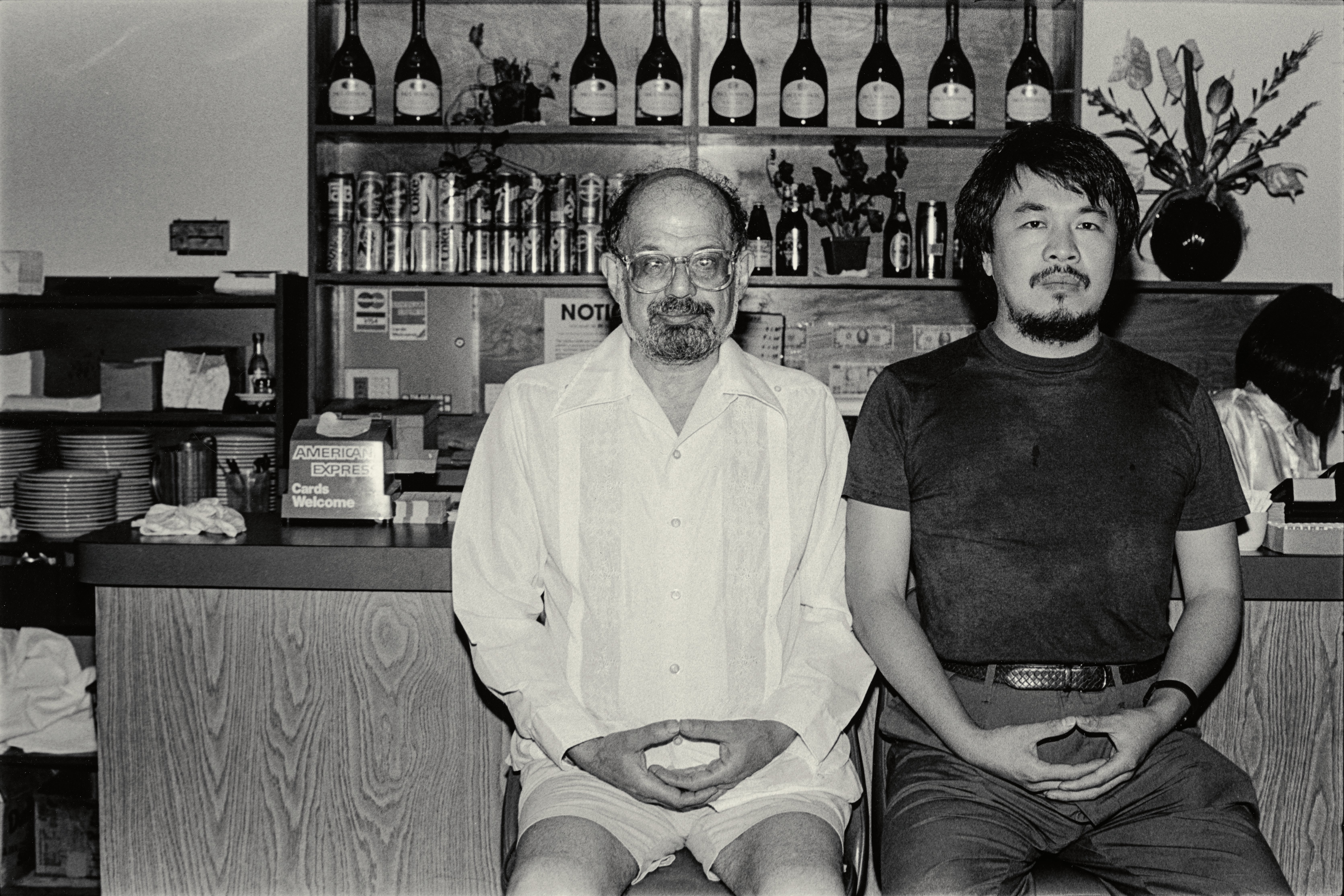
He writes that he flew home “empty-handed, bearing no trophies” from his life abroad. These would come later: by the time he left China in 2015, he was an internationally recognised artist and champion of free speech. But with exile comes a twinge of sadness: “If I have a sorrow it’s that I cannot stay in China to contribute my voice to China’s development.”
Ai has lived much of his life on the road. At several points in 1,000 Years of Joys and Sorrows, he compares himself to a “strand of duckweed” with no bonds tying him to one particular place. Since leaving China, he has lived in Germany, a country he did not find welcoming, followed by the UK and now Portugal. “I am a traveller. I don’t have a sense of belonging. I can always be critical.”
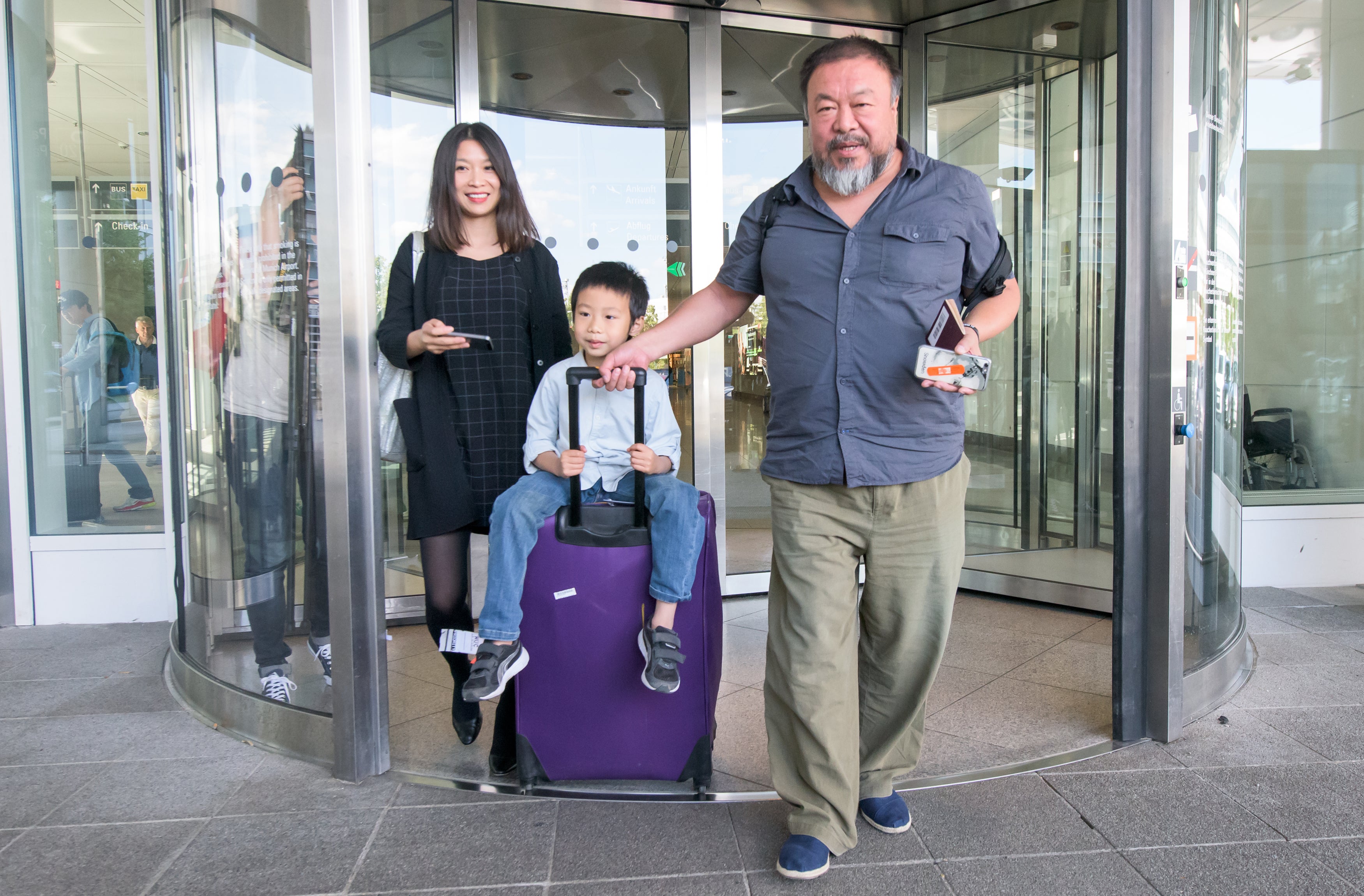
He adds that artistic inspiration can come to him anywhere. “It can happen in a hotel or an airport, on the plane or on the train, anywhere is fine with me. Because I don’t need a place to hang my artwork, all my artwork is hanging in my head,” he explains.
I ask about the hardship of being apart from his 89-year-old mother, Gao Ying, who lives in China and counsels him against returning for fear he could be arrested once more. Ai says he tries hard not to be too sentimental. But such separation must surely take its toll, even though they do communicate every day.
He says Gao, who is not as central to his book as his father, is a very caring person with strong morals, who has lived through a lot. Most people in her shoes would have divorced a husband who had become a social pariah, Ai says. But instead, she chose to jump into the “black hole” with Ai Qing and protect him, he adds.
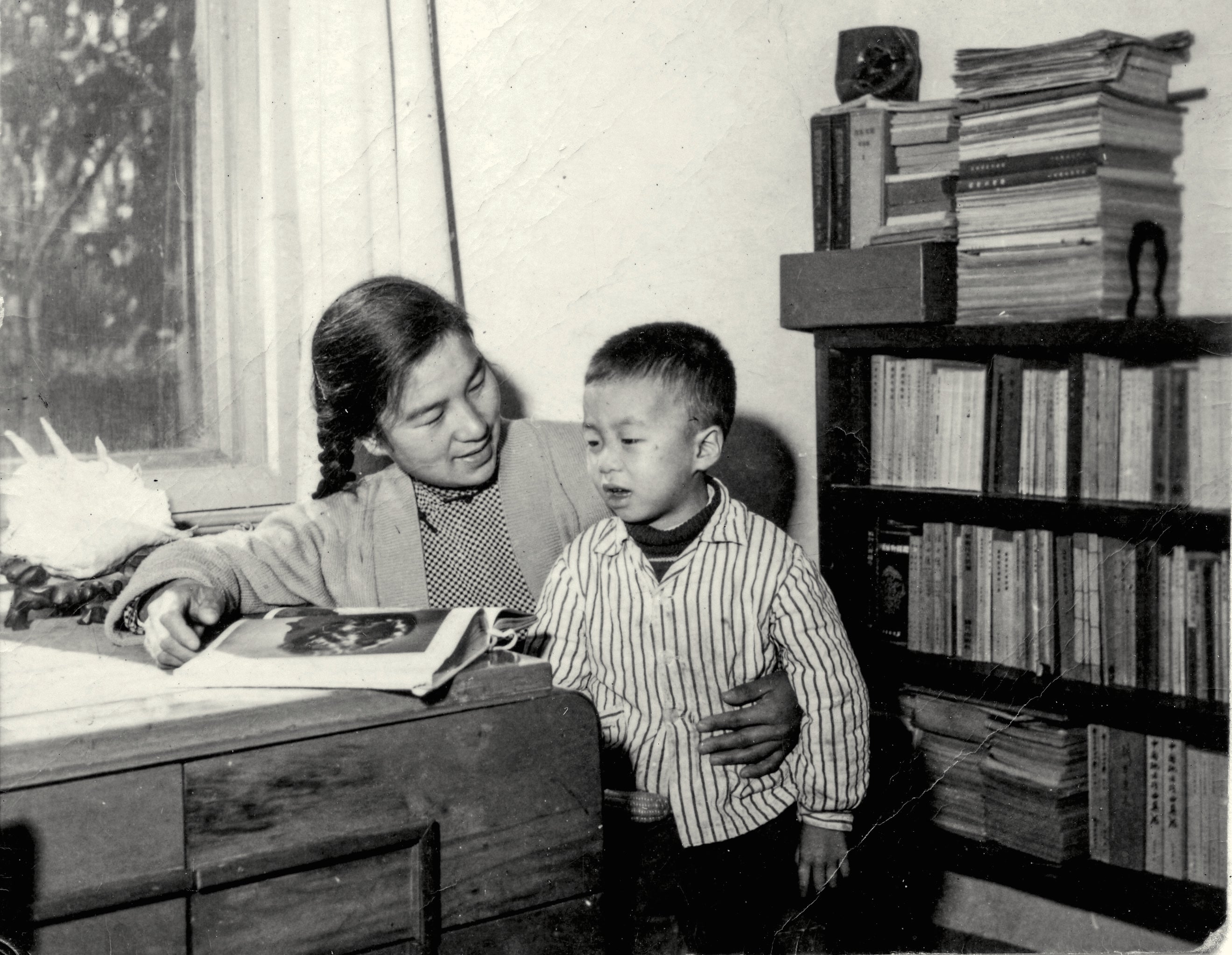
His own dogged acceptance of his lot matches his mother’s. “I’ve led a pretty full life under difficult conditions. I’ve maximised my energy and focus,” he says. Ai has certainly been very busy since he left Beijing: his recent array of projects include two deeply moving documentaries about refugees, Human Flow and The Rest.
Ai also continues to support various causes (he prefers not to call this activism, which he sees as a western categorisation). The day before our meeting, he attended a protest in central London which called on the British government to free the WikiLeaks founder Julian Assange rather than extradite him to the US, where he faces criminal charges over classified documents he published. A sticker showing his support for the Australian is stuck to the back of his phone.
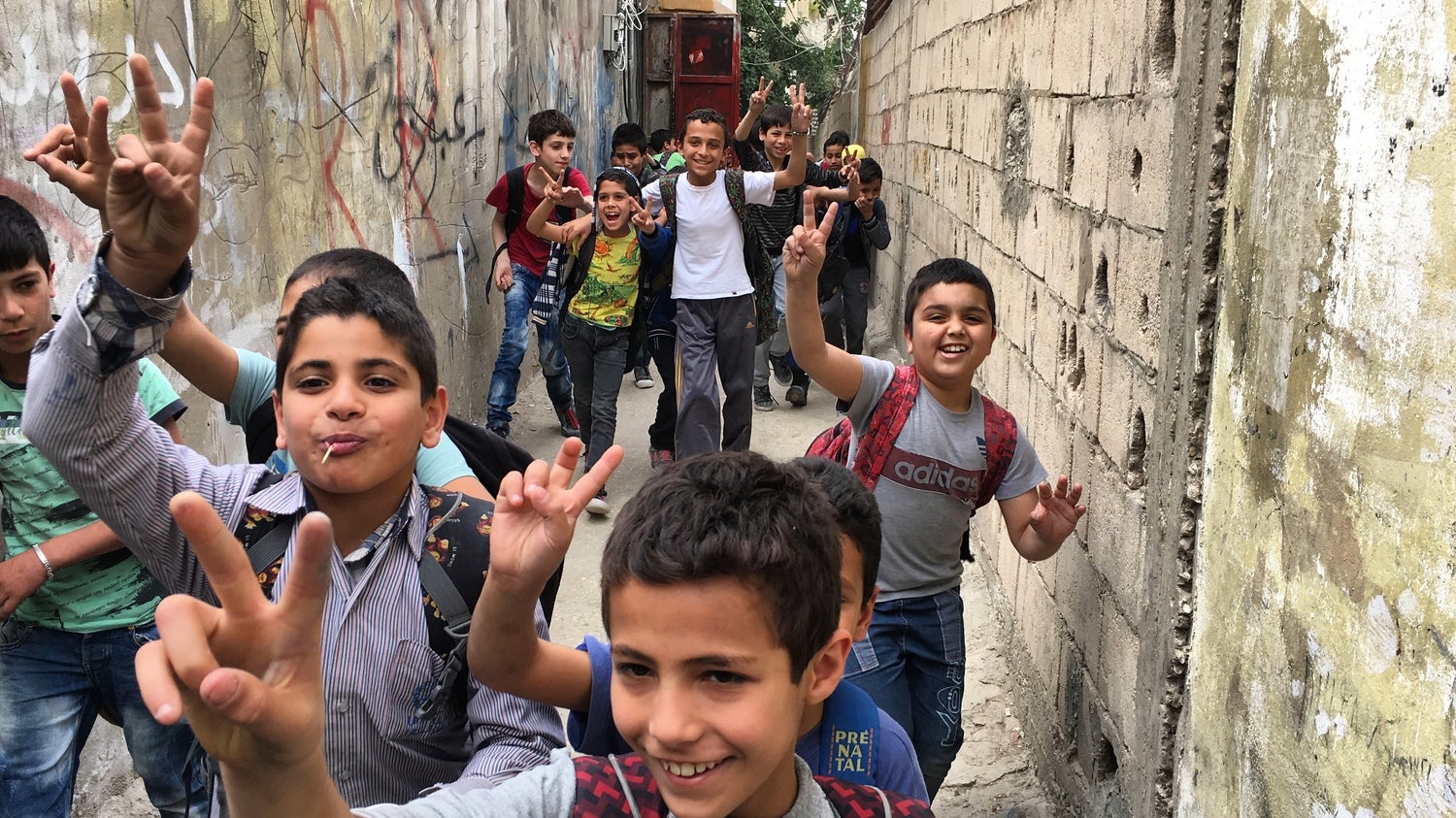
Never one to hold back his thoughts, Ai talks plainly about geopolitics. He speaks about how the west now has to accept the consequences of doing business with China for the past 30 years. He compares China to a tiger, whose back other countries can no longer jump off. Ai thinks all governments perpetuate injustice, and says the UK displays a “cowardly psychology” by not accepting more refugees, despite once occupying most of the world.
The 64-year-old also gives an honest assessment of how art fits into his life. “My art is not important. It’s some phenomenon relating to my life. And life is much more interesting, much more meaningful. Art is a by-product of it. It reflects who I am.”
With 1,000 Years of Joys and Sorrows, he has now shared more about his life. He hopes his memoir catches people’s attention, causing a figurative spark to match the literal one which consumed his first copy. Gesturing to the flames on his phone, he adds: “Do you see how beautifully a book burns?”
‘1,000 Years of Joys and Sorrows’ is published in the UK by Bodley Head and can be purchased here






Join our commenting forum
Join thought-provoking conversations, follow other Independent readers and see their replies
Comments